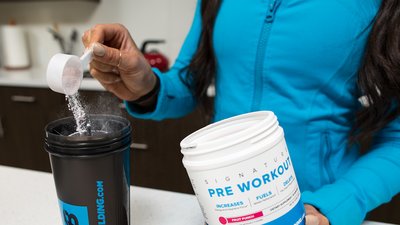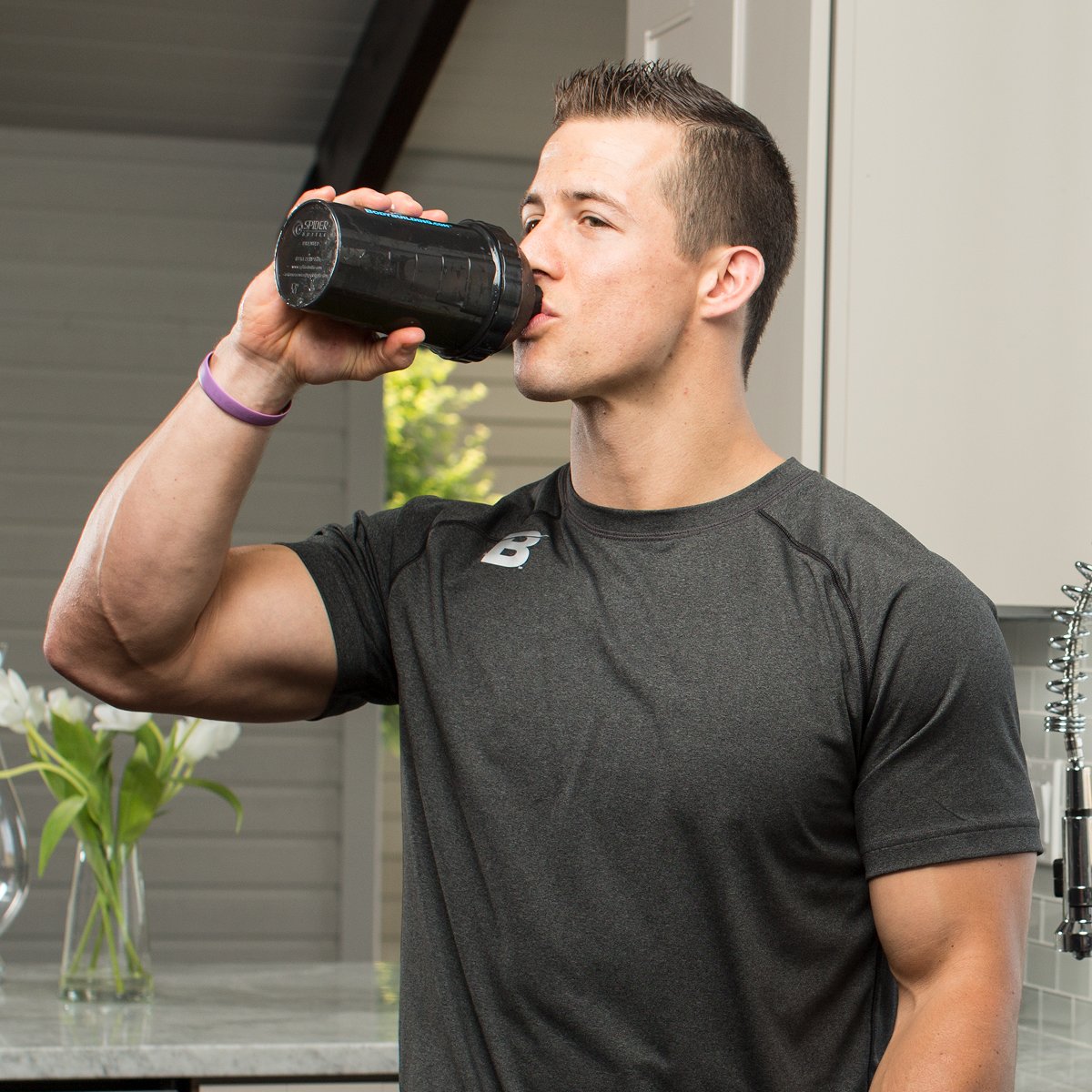You often see people drinking their pre-workout as they're walking into the gym, or even out of the locker room. This is one gym habit that you shouldn't copy if you want yours to be as effective as possible!
Here's why: "Most of the active ingredients in your pre-workout drink take 30-60 minutes to reach peak levels in your blood," writes Krissy Kendall, Ph.D., in the article "3 Mistakes You're Making With Your Pre-Workout." "If you wait until you reach the gym to take it, you'll be well into your second or third exercise before the full effects kick in."
If you take your pre-workout earlier than that, like 60-90 minutes, you'll still have enough energy to get through even a pretty long workout. Most pre-workouts contain caffeine, and it takes your body 3-5 hours to cut the concentration of caffeine in your blood in half. That's how long a normal pre-workout can be said to "last," although everyone metabolizes caffeine at different rates.
For that reason, an equally important concern is whether you're taking your pre-workout too late, especially if you work out in the late afternoon or early evening. Since many pre-workouts contain large amounts of caffeine, taking them too late in the day may harm your sleep. That's a big deal because getting enough sleep is one of the most important factors for recovering from your hard work in the gym. Lack of sleep can even mean more body fat!
Then there's the question of how often you should take a pre-workout. Lots of people take pre-workout before nearly every workout. The only downside to this approach is that because caffeine is technically addictive, you may become more tolerant of its effects and need to take increasing amounts of it to get the same energy boost.
For this reason, many coaches and athletes recommend saving a pre-workout for important workouts, especially intense ones, or routines that focus on larger muscle groups like legs, back, or chest.


